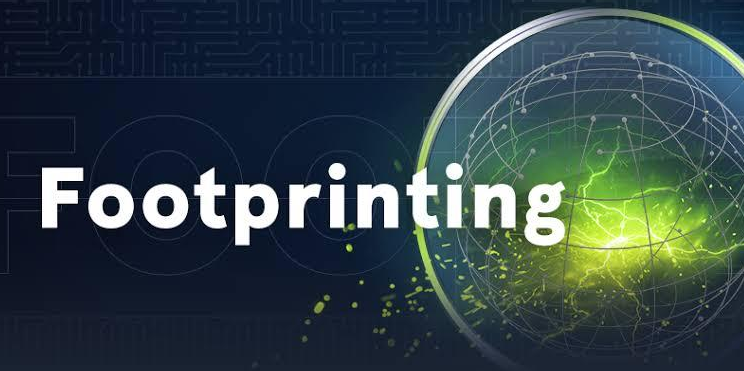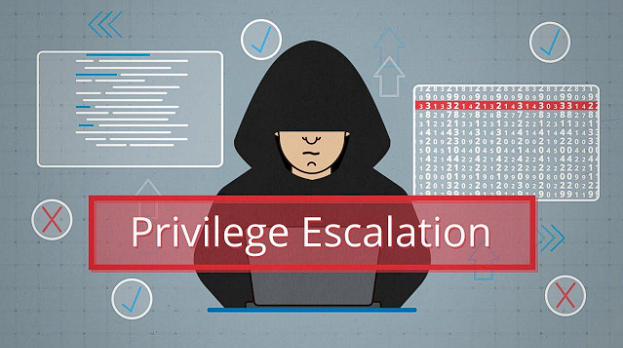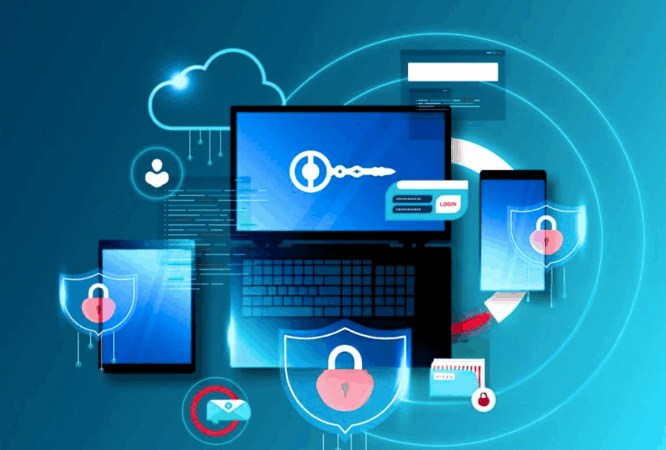Kali Linux & Ethical Hacking Fundamentals

This comprehensive course introduces learners to the fundamentals of Kali Linux, ethical hacking, and penetration testing. Starting with the basics of the Kali Linux operating system, participants will develop a strong foundation in command-line operations, file and user management, and …
This comprehensive course introduces learners to the fundamentals of Kali Linux, ethical hacking, and penetration testing. Starting with the basics of the Kali Linux operating system, participants will develop a strong foundation in command-line operations, file and user management, and network configuration. The course progresses into the core principles of ethical hacking, including its methodologies, tools, and real-world implications. Through practical exercises and theoretical understanding, learners will gain insights into reconnaissance techniques such as footprinting, OSINT (Open-Source Intelligence), DNS analysis, social engineering, and more.
Ideal for aspiring cybersecurity professionals, system administrators, and IT enthusiasts, this course builds the essential skills required for entry-level roles in cybersecurity and prepares participants for further specialization in ethical hacking and penetration testing.
Module 1: Kali Linux Fundamentals
-
Kali Linux History and Introduction
-
Overview of Kali Linux GUI Desktops
-
Basic Kali Linux Commands
-
Working with Archives: Tar and Zip Utilities
-
Compiling Programs in Linux
-
Identifying Software Packages
-
Installing and Removing Software Packages
-
User Account Management
-
Changing User Passwords
-
Understanding Passwd and Shadow File Formats
-
File and Directory Permissions
-
Octal Representation
-
Changing and Setting Default Permissions
-
-
Internet Addressing Basics
-
Network Services Overview
-
Commonly Available Network Services
-
Fundamental Network Configuration Files
-
Network Control Scripts and Tools
Module 2: Introduction to Penetration Testing & Ethical Hacking
-
Hacking Concepts and Terminology
-
Introduction to Hacking vs. Ethical Hacking
-
Effects of Hacking on Business and Society
-
Understanding Hacker Classes and Hacktivism
-
The Five Phases of Hacking
-
Defense in Depth and Layered Security
-
Vulnerability Assessment vs. Penetration Testing
-
Vulnerability Types and Research
-
Key Vulnerability Research Websites
-
-
What is Penetration Testing and Why It Matters
-
Penetration Testing Methodologies
-
Security Policies: Importance and Implementation
-
Types of Security Policies
-
Steps for Creation and Execution
-
-
Risk Management and Disaster Recovery
-
Defining and Analyzing Risk
-
Risk Mitigation Strategies
-
Disaster Recovery Planning and Testing
-
Module 3: Footprinting and Reconnaissance
-
Footprinting Concepts and Objectives
-
Threats and Methodologies
-
Using Search Engines for Footprinting
-
Finding Internal and External URLs
-
Gathering Information from Public, Financial, and Job Sites
-
Monitoring Targets via Alerts
-
Website Footprinting and Mirroring
-
Tools like Website Watcher and Archive.org
-
-
Email Footprinting
-
Email Header Analysis and Tracking Tools
-
-
Google Hacking and Advanced Search Techniques
-
What Hackers Can Do with Google Dorks
-
Google Hacking Tools
-
-
WHOIS and DNS Footprinting
-
WHOIS Lookup Tools and Result Interpretation
-
DNS Interrogation Tools: Nslookup, Dig
-
-
Network Footprinting
-
Discovering Network Ranges and Operating Systems
-
Using Traceroute and Interpreting Results
-
-
Footprinting via Social Engineering
-
Techniques like Eavesdropping, Dumpster Diving
-
Data Collection from Facebook, Twitter, LinkedIn, YouTube
-
Social Network Tracking Tools
-
-
Footprinting Tools Overview
-
Maltego
-
Domain Name Analyzer Pro
-
Web Data Extractor
-
Additional Tools and Use Cases
-
- 4 Sections
- 70 Lessons
- 10 Weeks
- Information Security13
- 1.1Information Security1 Hour
- 1.2Vulnerability, Exploit and Payload1 Hour
- 1.3Network Penetration Testing1 Hour
- 1.4Penetration Testing Methodologies1 Hour
- 1.5Phases of Penetration Testing1 Hour
- 1.6Scope of Penetration Testing1 Hour
- 1.7Bug Bounty1 Hour
- 1.8Security Threats1 Hour
- 1.9Classification of Security Threats1 Hour
- 1.10CIA Triad1 Hour
- 1.11Defense in Depth1 Hour
- 1.12Vulnerability Management1 Hour
- 1.13Vulnerability Research1 Hour
- Reconnaissance (Footprinting)24
- 2.1Reconnaissance (Footprinting)1 Hour
- 2.2Spidering and Crawling1 Hour
- 2.3Waybackurls1 Hour
- 2.4Websites Built With1 Hour
- 2.5WHOIS Lookup1 Hour
- 2.6Content Delivery Network (CDN)1 Hour
- 2.7IP Address to Location Lookup1 Hour
- 2.8Autonomous System Number1 Hour
- 2.9IP Address History1 Hour
- 2.10Google Hacking Database (GHDB) – Google Dorks1 Hour
- 2.11Google Search Advanced Operators1 Hour
- 2.12Google Dorks – Exploit Search Techniques1 Hour
- 2.13Google Hacking Database Tools1 Hour
- 2.14Shodan Recon1 Hour
- 2.15Shodan Recon Filters1 Hour
- 2.16Environment Types in Software Development1 Hour
- 2.17Shodan CLI1 Hour
- 2.18GitHub Recon1 Hour
- 2.19Open-Source Intelligence (OSINT)1 Hour
- 2.20GPS IP Logger1 Hour
- 2.21Email Tracking & Protocols1 Hour
- 2.22Email Tracking Tools1 Hour
- 2.23Email Spoofing1 Hour
- 2.24People Search & OSINT Resources1 Hour
- Kali Linux11
- 3.1Kali Linux Introduction1 Hour
- 3.2Kali Linux Installation1 Hour
- 3.3NVIDIA GPU Drivers and CUDA Toolkit on Kali Linux1 Hour
- 3.4Useful Tools and System Setup for Kali Linux1 Hour
- 3.5Penetration Testing Lab Resources1 Hour
- 3.6Offline Virtual Machines – VulnHub1 Hour
- 3.7Types of Network Penetration Testing1 Hour
- 3.8Ping (Packet Internet Gopher)1 Hour
- 3.9ARPing1 Hour
- 3.10hping31 Hour
- 3.11nping1 Hour
- Nmap22
- 4.1Nmap Installation1 Hour
- 4.2IP (Internet Protocol) Header1 Hour
- 4.3TLS Handshake Process1 Hour
- 4.4Nmap Scanning Workflow: Step-by-Step1 Hour
- 4.5Target Specification in Nmap1 Hour
- 4.6Nmap Host Discovery1 Hour
- 4.7Nmap Host Discovery1 Hour
- 4.8Nmap Port Specification and Scan Order1 Hour
- 4.9Port Knock1 Hour
- 4.10Nmap Port Scanning Output1 Hour
- 4.11Nmap Scan Techniques1 Hour
- 4.12TCP Connect Scan1 Hour
- 4.13Idle Scan Using a Zombie Host1 Hour
- 4.14Service Version Detection1 Hour
- 4.15Nmap Timing and Performance Options1 Hour
- 4.16Firewall, IDS, and IPS Evasion & Spoofing in Nmap1 Hour
- 4.17Nmap Scripting Engine (NSE) – Script Scan (-sC or –script)1 Hour
- 4.18Nmap Warrior Python Script1 Hour
- 4.19RustScan – The Modern Port Scanner1 Hour
- 4.20Naabu – Fast and Simple Port Scanner1 Hour
- 4.21NetBIOS Network Scanner1 Hour
- 4.22Netcat (nc) — The Swiss Army Knife of Networking1 Hour
You might be intersted in
-
21 Students
-
10 Weeks
-
88 Students
-
24 Weeks


